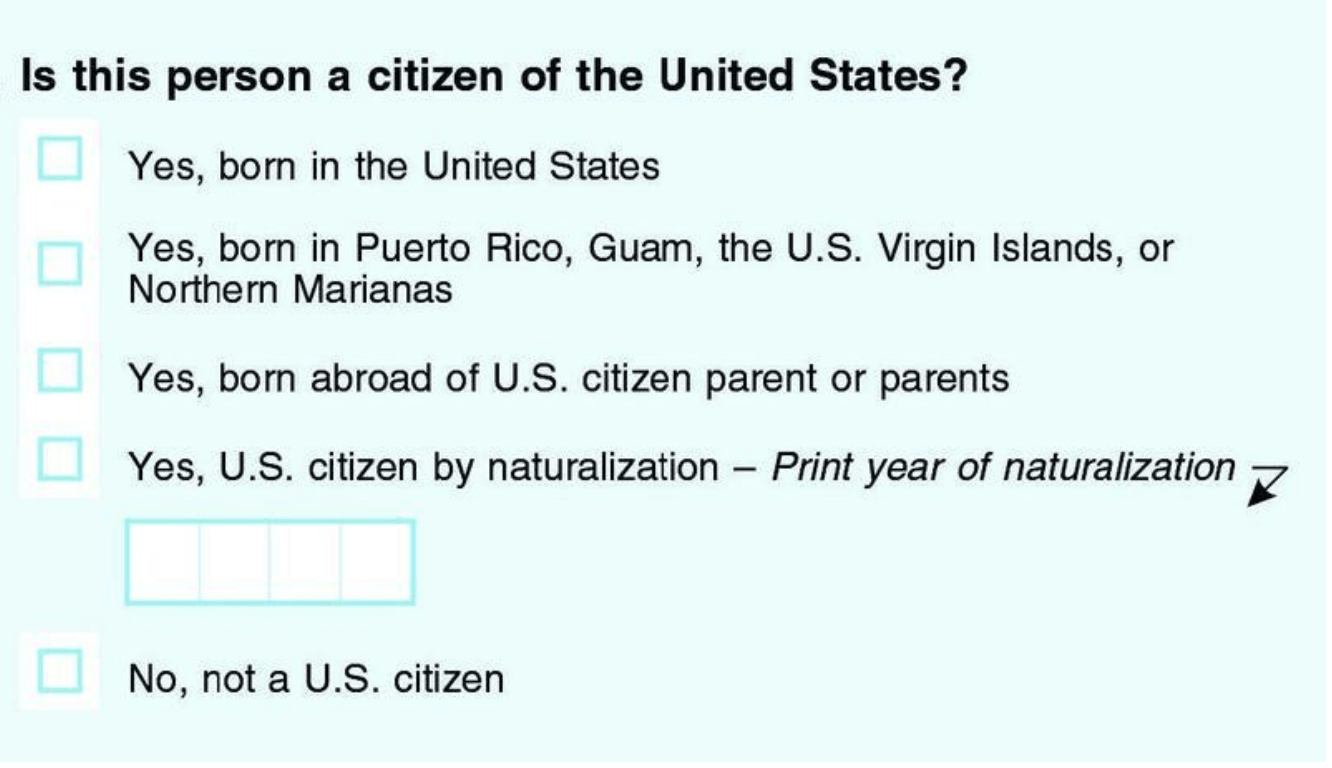Last Term Major Supreme Court Decisions #3: Census Question
With June came the last opinion days of the October 2018 Supreme Court term. Over the month, the Court publicly announced the remaining decisions on cases that had been fully briefed and argued during the term. As often happens, in those final days, the Court releases opinions in many of the most contentious, most closely watched cases and this year was no exception. The three cases addressed: Gerrymandering of Congressional districts, Separation of Church and State, and Citizenship Question on 2020 Census.
Because of the fundamental questions raised in each case, the CSES Editors determined only one will be discussed in each of the next three issues: 7/24 Gerrymandering , 8/7 Church and State , and 8/21 Census Question. Earlier CSES issues have dealt with aspects of these topics: Gerrymandering , Church and State , Census Question .
Department of Commerce v New York . By another narrow 5-4 vote in the most politically charged case of the term, the Court set back the decision of Wilbur Ross, the Secretary of Commerce, to add a citizenship question to the 2020 census. In March 2018, Ross announced in a memo that he had decided to add a citizenship question on the 2020 census “solely” because the Department of Justice (DOJ) had asked for census block level citizenship data for use in enforcing the Voting Rights Act (VRA).
Ross’ decision was promptly challenged in three different federal district courts by various governmental organizations and others as likely to lead to a serious population undercount affecting the drawing of voter districts and the disbursement of large amounts of federal funds. In upholding challenges to his decision, all three lower federal courts had, among other rulings, determined that Ross had made his decision long before the DOJ request had been received, a request made only following repeated efforts by the Commerce Department to find some other government agency willing to support his decision.
Five of the Court’s more conservative Justices concluded that Ross’ decision was either not reviewable by the federal courts or, if reviewable, was within his discretion to make. Four of the more liberal Justices concluded that his decision should be reversed because the evidence clearly demonstrated that Ross had ignored the experts within the Census Bureau who had concluded that including the question would result in a significant decline in responses to the census. However, the Chief Justice joined the four more liberal Justices in determining that the reason offered for Ross’ decision was “contrived” because “the evidence tells a story that does not match the explanation the Secretary gave for his decision.” Judicial review calls for “something else."
The upshot of the Court’s resolution was to send the matter back to the Commerce Department for a possible “do-over” by way of another explanation for the decision. However, five days later, DOJ and the Commerce Department said that the census forms were on the way to the printers without a citizenship question attached. Hours later, President Trump announced that “a way would be found” to place the question on the census forms but, evidently, the way was never found and the printing continues without the citizenship question.
Although the Attorney General insisted that the administration would ultimately succeed were litigation to have continued, in fact, advancing yet another reason for including the question would surely have likewise been challenged as also “contrived,” and DOJ had repeatedly told the federal courts that the census form printing had to start no later than the end of June as the reason the case required expedited treatment.
Common Sense for the Eastern Shore








